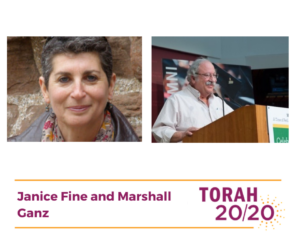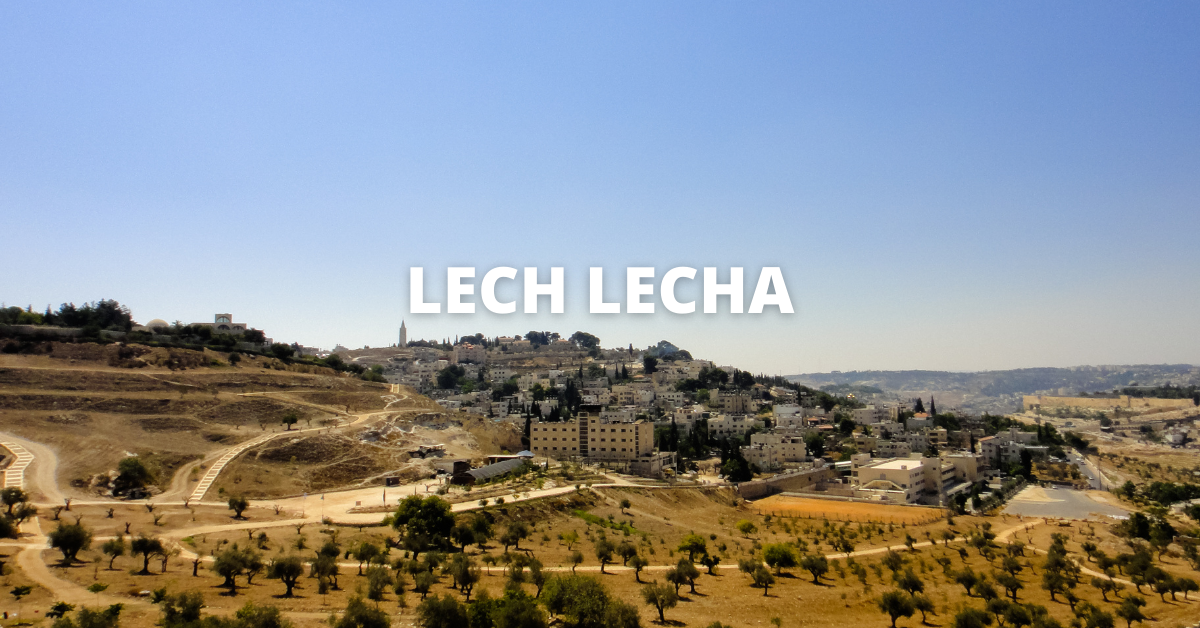A D’var Torah for Parshat Lech Lecha by Janice Fine and Marshall Ganz
“And the ETERNAL said to Abram, ‘Go forth from your land and your birthplace and your father’s house to the land I will show you. And I will make you a great nation and I will bless you and make your name great, and you shall be a blessing.’” (Genesis 12:1)
With these opening lines of Lech Lecha, we are introduced to our origin as a people. There is Abram’s decision to “go forth” from that land in which his identity had been rooted to an undefined new “land,” known only by God’s showing it to him, and there is a promise of becoming a “people” and a recipient of God’s blessing. Through that blessing, Abram is to become a source of blessing for others.
Land, people, and God. Among these promises, the most robust, unequivocal, and identity-defining is the blessed relationship with God. Second is that of becoming a numerous people who are in relationship with God. Least robust, to our reading, is that of “a land,” an uncertain territory, a space in which the two other soul-saving and life-giving interactions – with God and as a people – can unfold.
And so it is!
Throughout the remainder of the chapter, land is shown to be the most limiting and the least defining of the three promises. Abram is a “sojourner” who only briefly visits the land – to which he is a blessing, not it to him, as he marks it with altars to God (Chapter 12) – before he and his clan are off to Egypt. There he accumulates enough wealth to return (Chapter 13) to the land, only to find it insufficient to host his flocks and those of Lot (Chapter 13). Even by Chapter 23, two parshiyot hence, Abram remains a “sojourner and settler” who purchases the parcel of land in which he can bury Sarah.
Although being “shown the land” seems to be a moving target, remaining a remote promise, the formation of a people in relationship with God proceeds apace. The promise of a people itself remains at risk until God definitively steps in to enable Sarah to bear Isaac. There is no such intervention with respect to land. We might actually say that the people of God are the ones who give meaning to the land, rather than the land giving meaning to the people. Indeed, believing that land gives meaning to people could be seen rather as a form of idolatry that confuses a material and limited object of blessing with the source of blessing.
For most of our history, our identity has been crafted and recrafted as the story of our relationship with God and with each other, independent of the land in which we have found ourselves – especially since the destruction of the Temple in 70 CE. Unlike many peoples – whose identities were bounded by the places in which they lived, the gods who inhabited those places, and the practices that could only be performed in those places – the blessing of our identity transcends place. From the very beginning, we have been the sojourners, our identity shaped in an ever unfolding, ever changing story of our relationship with a God who created all places but is confined to none. Perhaps the emphasis in the words lech lecha was the value of “going from,” the courage to depart a concrete specific place that had become a confinement, rather than on “going to,” arriving at a defined single destination. And for those of us who live in “diaspora,” who is to say God has not shown us these lands as well?
In our own time and place, we are wise to recognize the danger of allowing any single land to confer sanctity on any single people.  Abram’s comings, going, and sojournings remind us that it is the covenantal blessing of our community that holds us together, regardless of where we came from or how we got there.
Abram’s comings, going, and sojournings remind us that it is the covenantal blessing of our community that holds us together, regardless of where we came from or how we got there.
Janice Fine is Professor of Labor Studies and Employment Relations at Rutgers University School of Management and Labor Relations and Director of Research and Strategy at the Center for Innovation in Worker Organization (CIWO). She is a member of the T’ruah Board.
Marshall Ganz is the Rita T. Hauser Senior Lecturer in Leadership, Organizing, and Civil Society at the Kennedy School of Government at Harvard University.

